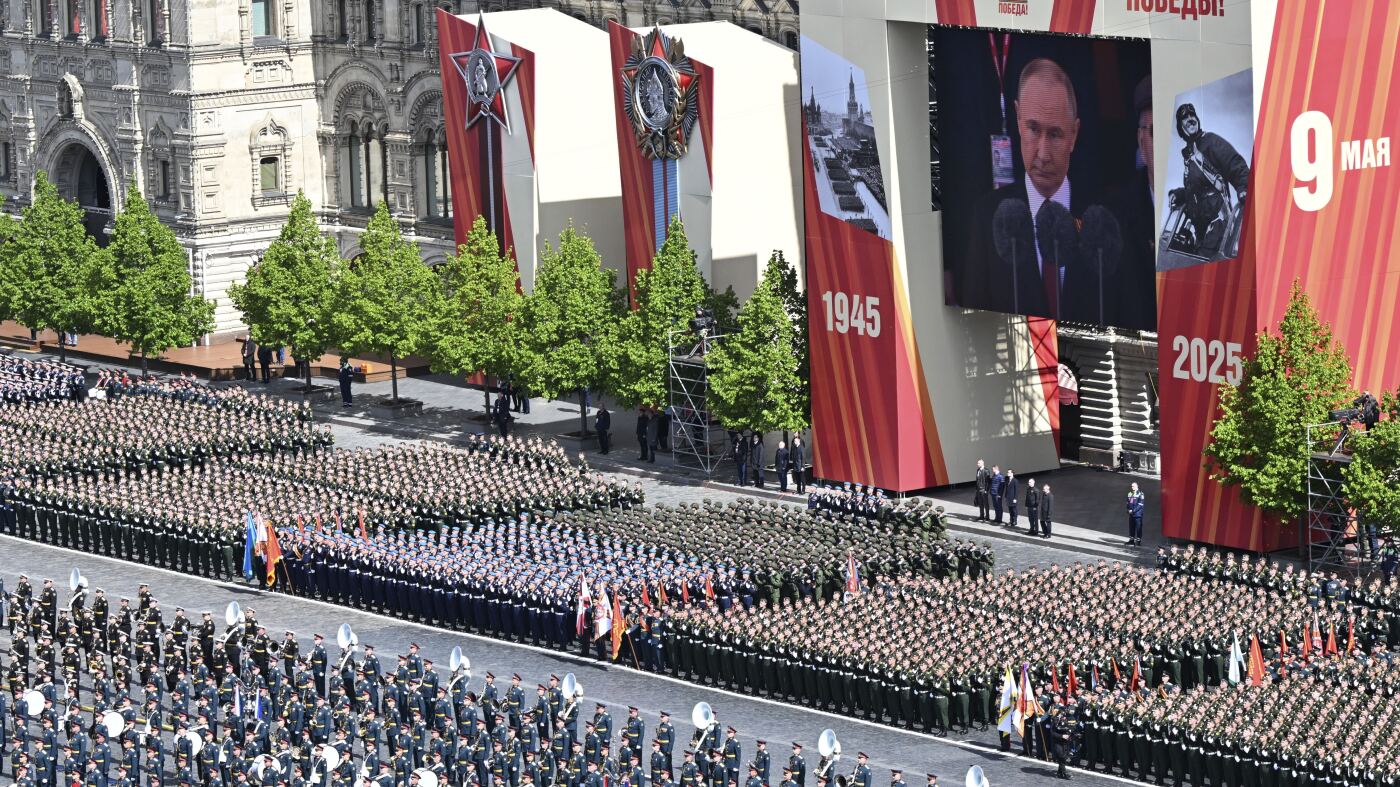Russia’s 80th Anniversary of Victory Over Nazi Germany: A Multifaceted Commemoration
Introduction
Russia’s 80th anniversary of victory over Nazi Germany is not merely a historical milestone—it is a powerful symbol of national identity, resilience, and geopolitical positioning. The grand military parade on Red Square, the Immortal Regiment march, and the presence of global leaders all contributed to a spectacle that blended historical reverence with contemporary political messaging. This report delves into the significance of the event, its historical roots, and its implications in today’s geopolitical landscape.
The Grand Military Parade: A Display of Strength and Memory
A Showcase of Military Might
The military parade on Red Square was a meticulously orchestrated display of Russia’s armed forces, featuring advanced weaponry, including tanks, missile systems, and precision-guided munitions. The synchronized march of troops underscored discipline and unity, reinforcing the image of Russia as a formidable military power.
Honoring the Past
Beyond its modern military significance, the parade served as a tribute to the Soviet Union’s role in defeating Nazi Germany. The inclusion of historical regiments and WWII-era vehicles emphasized continuity between past and present, reminding both domestic and international audiences of Russia’s wartime sacrifices.
International Attendance and Absences
The presence of leaders such as China’s Xi Jinping and Brazil’s Lula da Silva signaled Russia’s diplomatic alliances, while the absence of Western leaders highlighted ongoing geopolitical tensions. This selective attendance framed the event not just as a historical commemoration but as a statement on Russia’s current global standing.
Historical Context: Why Victory Day Matters
The Turning Point of WWII
Victory Day, celebrated on May 9, marks the formal surrender of Nazi Germany to the Soviet Union in 1945. The Soviet Union bore the brunt of the Eastern Front, suffering immense casualties—estimated at over 27 million deaths. Key battles, such as Stalingrad (1942-1943) and Kursk (1943), were pivotal in reversing Nazi advances and ultimately securing Allied victory.
The Siege of Leningrad: A Symbol of Endurance
The 80th anniversary also commemorated the end of the 872-day siege of Leningrad (1941-1944), one of the most brutal episodes of WWII. Over a million civilians perished from starvation and bombardment, yet the city’s resistance became emblematic of Soviet perseverance. Putin’s presence at St. Petersburg’s commemorations reinforced this narrative of resilience.
The Immortal Regiment: Personalizing Collective Memory
A Grassroots Tradition
The Immortal Regiment march, where citizens carry portraits of relatives who fought in WWII, has become a cornerstone of Victory Day. Unlike the state-led parade, this procession is a civilian-led act of remembrance, connecting individual families to the broader national narrative.
Emotional and Political Dimensions
While the march began as an apolitical tribute, it has since been co-opted by the state to reinforce patriotism. In recent years, critics argue it has been used to bolster support for current policies, drawing parallels between past sacrifices and present-day conflicts.
Geopolitical Undercurrents: Victory Day in a Divided World
Russia-China Alignment
Xi Jinping’s attendance underscored deepening Sino-Russian ties, particularly amid Western sanctions over Ukraine. Joint statements emphasized a shared vision of a “multipolar world,” positioning both nations as counterweights to U.S. dominance.
The Shadow of Ukraine
The anniversary coincided with Russia’s ongoing war in Ukraine, creating a stark contrast between celebrations of past liberation and current military aggression. State media framed the conflict as a continuation of Russia’s historical struggle against “fascism,” a narrative contested by Western observers.
European Reactions
Most European leaders stayed away, reflecting strained relations. Instead, the EU commemorated the day with messages honoring all WWII victims, subtly rejecting Russia’s monopolization of the victory narrative.
Conclusion
A Legacy of Pride and Contention
Russia’s 80th Victory Day anniversary was a multifaceted event—equal parts memorial, military showcase, and political statement. It honored the Soviet Union’s immense sacrifices while reinforcing contemporary nationalistic and geopolitical agendas.
Reflection for the Future
As Russia navigates modern conflicts, the lessons of WWII remain a touchstone. Yet how this history is wielded—whether as a unifying force or a divisive tool—will shape not only Russia’s future but also its place in global memory. Victory Day, in all its grandeur and complexity, serves as a reminder that history is never just about the past; it is a lens through which the present is interpreted and the future imagined.











